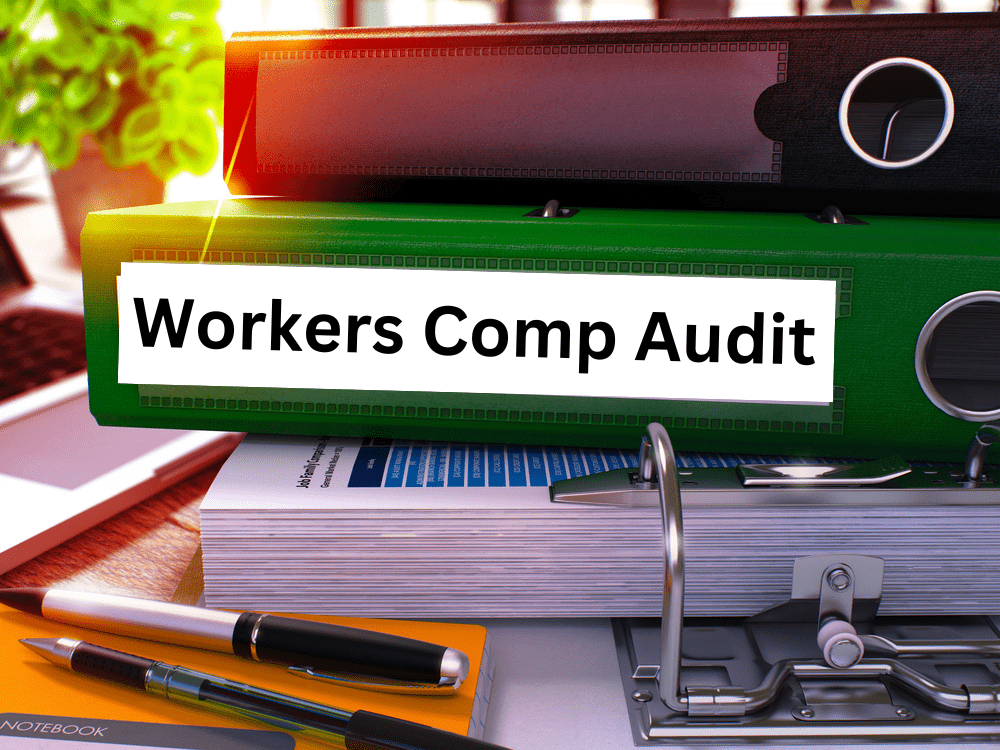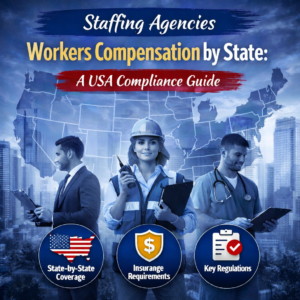Worker Comp Audit is a crucial component of protecting businesses and their employees in the event of workplace injuries or illnesses. As part of the insurance process, policyholders may undergo a Worker Comp Audit. While audits can seem daunting, they are a necessary step to ensure accurate premium calculations and compliance with insurance regulations. In this blog, we will delve into the intricacies of Worker Comp Audit, explaining why they are conducted, what to expect during an audit, and how businesses can prepare to navigate this process with ease.
Worker Comp Audit is a crucial insurance policy that provides coverage for employees who suffer job-related injuries or illnesses. It ensures that workers receive the necessary medical treatment and wage replacement while protecting employers from potential lawsuits. However, to ensure fairness and accuracy in the system, periodic Workers Comp Audit are conducted. In this article, we will delve into the concept of a Worker Comp Audit, its significance, and the key steps involved in the process.
Understanding Worker Comp Audit:
A Worker Comp Audit is a review process conducted by insurance carriers to verify the accuracy of a business’s payroll, job classifications, and other relevant information used to calculate wrkers’ compensation premiums.
A Laborer Comp Review may be a precise survey of an employer’s records, arrangements, and hones related to workers’ recompense protections. Its essential reason is to confirm the exactness of an employer’s premium calculation, guaranteeing that the proper sum is being paid based on the company’s operations, finance, and work classifications.
Insurance carriers or their appointed auditors conduct Workers Comp Audit. They examine the employer’s records to assess the accuracy of premium calculations, determine the classification of employees, and identify any potential underreporting or misclassification of workers.
Importance of Worker Comp Audit:
Workers’ compensation premiums are calculated based on various factors, including payroll, employee classification, and the industry’s risk profile. An audit helps ensure that the premium calculations are accurate, preventing underpayment or overpayment and maintaining fairness in the system. Worker Comp Audit are essential for several reasons.
Firstly, they ensure that businesses pay accurate premiums based on their actual exposure to risk. By reviewing payroll and job classifications, insurers can determine the appropriate premium rates, taking into account the specific nature of the business’s operations.
Secondly, Worker Comp Audit promotes fairness among policyholders. Businesses that accurately report their payroll and maintain accurate job classifications are not burdened with subsidizing those that may underreport or misclassify employees. Workers Comp Audit helps maintain a level playing field within the workers’ compensation insurance system.
Lastly, Worker Comp Audit plays a vital role in regulatory compliance. Insurers must ensure that businesses adhere to state laws and regulations regarding workers’ compensation insurance. Worker Comp Audit help identify any discrepancies or non-compliance issues, allowing insurers to address them promptly and ensure proper coverage.
What to Expect During a Worker Comp Audit:
During a Worker Comp Audit, an auditor from the insurance company will review various documents and conduct interviews to gather relevant information. The auditor will typically request payroll records, employee job classifications, certificates of insurance for subcontractors, and other documentation related to the business’s operations.
An audit helps ensure that the premium calculations are accurate, preventing underpayment or overpayment and maintaining fairness in the system.
Worker Comp Audit act as a deterrent against fraudulent practices such as misclassifying employees or underreporting payroll. By reviewing records and policies, audits help identify potential fraud, protecting honest employers and the integrity of the workers’ compensation system.
The audit process may involve the following steps:
While a Worker Comp Audit may seem daunting, it serves as a valuable tool for maintaining transparency and integrity in the insurance system.
Bosses ought to see the review prepare as an opportunity to audit their approaches, recognize regions for change, and reinforce their commitment to worker security and well-being. By prioritizing precise record-keeping, legitimate representative classification, and adherence to security conventions, managers can moderate the chance of reviewing discoveries that seem lead to money-related punishments or legitimate results.
1. Planning the Review: The protection company will inform the policyholder of the progress of the review and plan a commonly helpful time for the review to require put. This may include an on-site visit or a further review, depending on the insurer’s methods.
2. Gathering Documentation: The policyholder will assemble pertinent records asked by the reviewer, such as financial records, charge shapes, and certificates of protection for subcontractors.
3. Investigating Finance Records: The inspector will look at finance records to verify the precision of the detailed compensation, work classifications, and any changes that will have happened during the arrangement period.
4. Surveying Work Classifications: The reviewer will survey the work classifications allocated to representatives and temporary workers to guarantee they adjust to the work they perform. Accurate job classifications are vital, as different job roles carry varying levels of risk, which affects premium calculations.
5. Addressing Discrepancies: If the auditor identifies any discrepancies or inconsistencies, they will work with the policyholder to resolve them. This may involve discussions, clarification of job duties, or adjustments to payroll figures.
6. Finalizing the Audit: Once the audit is complete, the auditor will calculate the final premium based on the verified information. The policyholder will receive a report detailing any changes in premiums or potential refunds.
Preparing for a Worker Comp Audit:
Worker Comp Audit are essential for maintaining accuracy, fairness, and compliance within the workers’ compensation insurance system. By reviewing records, verifying premium calculations, and ensuring compliance with regulations, audits protect both employers and employees. Understanding the purpose and process of a workers’ compensation audit allows employers to prepare adequately and minimize potential issues or discrepancies.
1. Organize Documentation: Maintain accurate and organized payroll records, job descriptions, and subcontractor certificates of insurance. Having these documents readily available will streamline the audit process.
2. Review Job Classifications: Regularly review and update employee job classifications to ensure accuracy. Consult with insurance professionals or experts to ensure proper classifications based on the specific duties and risks associated with each role.
3. Educate Employees: Communicate the importance of accurate reporting and documentation to employees. Encourage them to report their hours and activities truthfully and promptly, as this information impacts premium calculations.
4. Seek Professional Assistance: Consider consulting with insurance brokers or risk management professionals who can provide guidance on workers’ compensation insurance requirements and assist with audit preparation.
Conclusion:
Worker Comp Audit are a necessary part of the insurance process to ensure accurate premium calculations and compliance with regulations. By understanding the purpose and steps involved in audits, businesses can prepare effectively and navigate the process with confidence. Proactively maintaining accurate records, regularly reviewing job classifications, and seeking professional assistance when needed will help businesses streamline the audit process and maintain compliance with Worker Comp Audit insurance requirements.
Worker Comp Audit plays a crucial role in ensuring the accuracy of premium calculations, preventing fraud, and promoting compliance with regulations. Employers should prioritize maintaining meticulous records, adhering to proper employee classification, and implementing robust safety measures. By embracing the audit process and actively participating in it, employers can contribute to a fair and efficient workers’ compensation system that benefits both businesses and their workforce.












